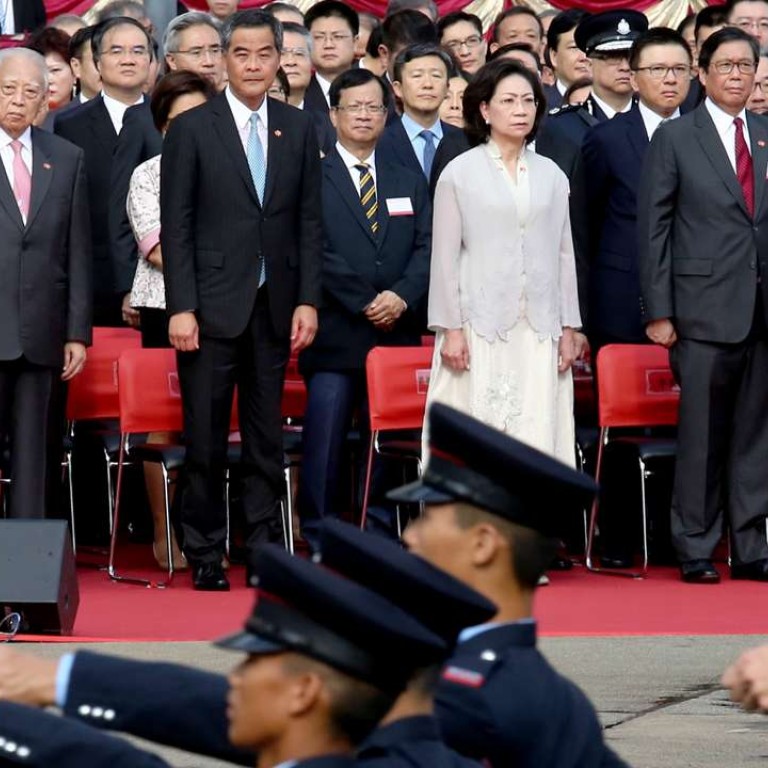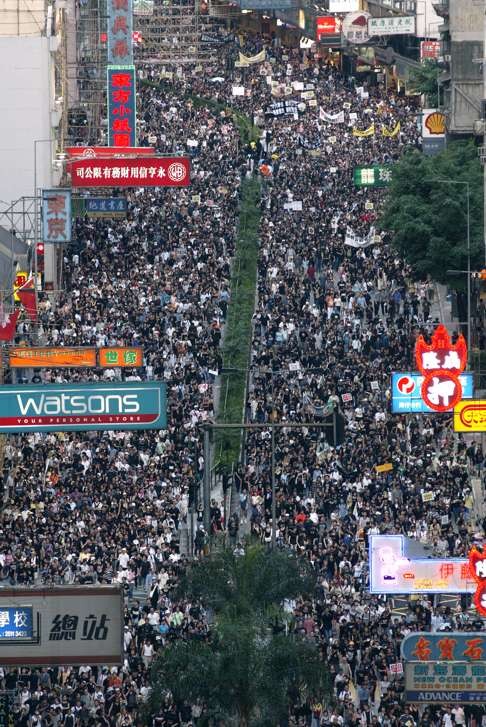
Ignorance at play as Hong Kong localists seek the impossible
Bernard Chan says the opening lines of the Basic Law make independence a non-starter and a closer study of it would aid constructive debate on the city’s future
Although many Hong Kong people probably think they know something about the Basic Law, the truth is that few of us have ever really taken the time to study it.
This is not a criticism – if I had not been a member of the legislative and executive councils over the years, I would never have looked at it in detail.
It is not surprising that many of us have some misunderstandings about the document. Even calling it a “mini constitution”, which is convenient, does not really go far enough.
It certainly does describe our local rights, political structure and internal arrangements. But it has a deeper purpose. It is a law passed by the National People’s Congress, and it enshrines the country’s basic policies on Hong Kong. It defines the city’s relationship to the nation under the “one country, two systems” principle.
Ask people to name a part of the Basic Law and many will say Article 23. They remember the debate and uproar in 2002-2003 when the government tried to implement that article, which requires Hong Kong to enact laws to prohibit sedition, secession and other acts against the central government.

Hong Kong does need to revisit Article 23 – not to criminalise calls for independence, but to modernise our outdated sedition laws
People may also recall other controversies connected with the Basic Law, even if they cannot name the specific articles. There was the right of abode issue (Articles 22 and 24), the right to welfare (Article 36) and election reform for the chief executive (Article 45 and Annex 1).
Articles of the Basic Law are arranged in different categories. Article 23, for example, is in the chapter concerning the relationship between Hong Kong and the central government. Articles 24 and 36 are in the chapter on Hong Kong people’s rights. Article 45 is in the part about our political structure.
The latest part of the Basic Law to become controversial is Article 1. This is in the chapter on the general principles guiding China’s policies on Hong Kong. It is the article that says Hong Kong “is an inalienable part” of China. This opening line of all the Basic Law articles means that independence is a non-starter from a constitutional viewpoint. It means that activists claiming to support Hong Kong independence are asking for something impossible.
Don’t let Legco elections become stage for promoting independence, warns Beijing’s top man in Hong Kong
Some of them say they want independence or some radical change in Hong Kong’s status in 2047. This reflects a serious misunderstanding of the principle of no change for 50 years, which also appears in the Basic Law’s chapter on general principles. That’s in Article 5, which specifies that the socialist system will not apply in Hong Kong for 50 years – the city’s pre-1997 system will continue.
That is all Article 5 says. It does not specify what might come after 2047, but we know it cannot be independence or a referendum on some sort of separation, because Article 1 already makes that clear.
People who talk about independence as some sort of constitutional possibility are displaying ignorance of the Basic Law
Some activists respond that the Basic Law can be amended, so these obstacles will disappear. Turn right through to the very last line of Article 159 – the last article except for a supplementary one. It says that no Basic Law amendment can contravene China’s “established basic policies” on Hong Kong. This brings us full circle back to Article 1.
Articles 1, 12 and 159(4) are the ones in the declaration that Legislative Council election candidates were asked to sign.
People who talk about independence as some sort of constitutional possibility are displaying ignorance of the Basic Law. Some young people even feel they can ignore it, as it was drafted before their time and by a Beijing-appointed committee.
The Basic Law is important and – like it or not – binding. But it does not mean things are fixed forever. We are in the 20th year of the 50-year period of no change. Many people in business, legal and other circles are starting to wonder what happens after 2047. The Basic Law does not say. Provided the basic policies are followed, all sorts of arrangements could be possible.
There is considerable room for debate about how Hong Kong should be run in the future, including after 2047. If we learn a bit more about the Basic Law, we will be able to keep that debate constructive and realistic.
Bernard Chan is a member of the Executive Council

